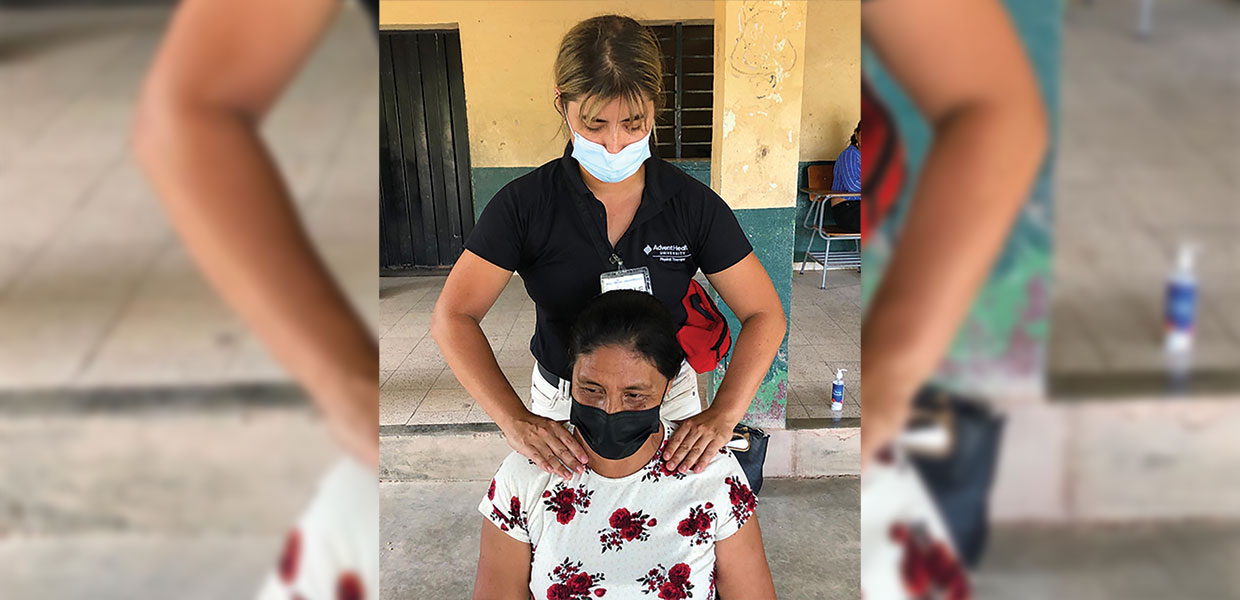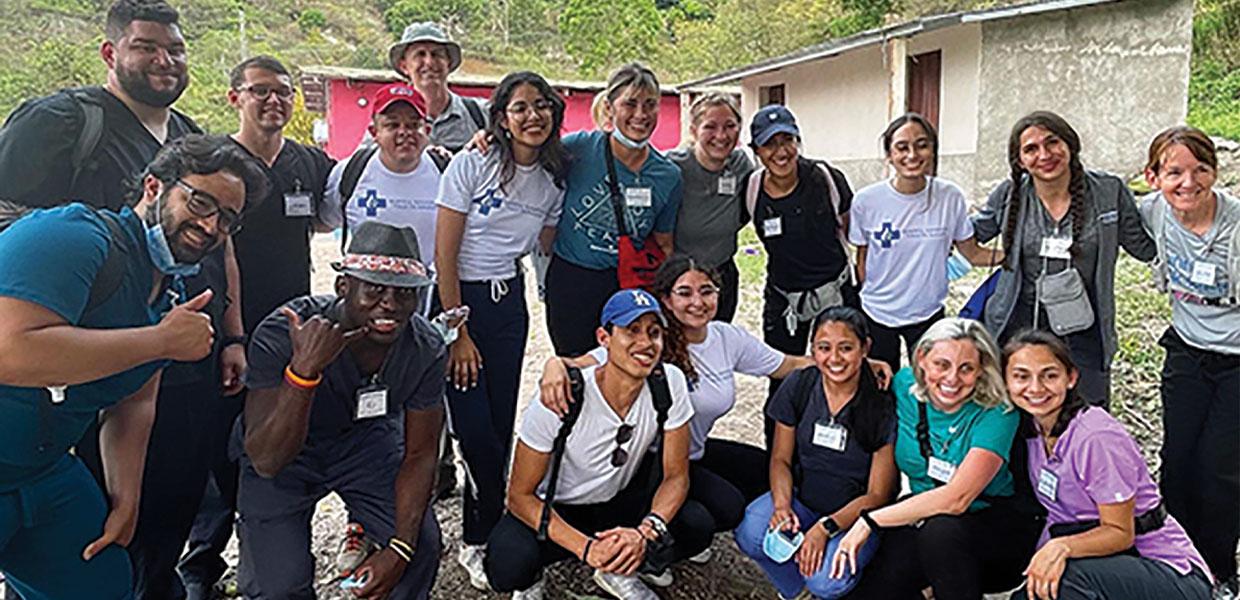

Logan Keedy and Danielle Palmer, doctor of physical therapy students from AdventHealth University, recently traveled to Honduras for a service trip as part of their global service-learning course. After returning from their trip, they documented some reflections on the experience.
Participating in a service trip is a requirement for all doctor of physical therapy students at AdventHealth University, as part of its global service- learning course. The trips, however, are so much more than a graduation requirement for us.
In Honduras, access to health care services, especially in rural areas, can be quite limited due to scarce transportation and the lack of financial resources to pay for health care services. Although public hospitals can be a more affordable option, many are located hours away from the villages we served.
With support from the AdventHealth Global Missions office, our team traveled to Valle de Angeles, in southern Honduras, to provide primary care, physical therapy, and medication prescriptions to approximately 1,000 patients in nearby communities during a five-day period. With support from the staff at Hospital Adventista Valle de Angeles, we set up pop-up clinics at the local schoolhouses in the villages of Pajarillo, Suyapa, Bartolo, Carbón, and Cerro Bonito.
While providing physical therapy, we encountered two main challenges: lack of equipment and the inability to conduct follow-up visits with patients.
We had one examination table to share among four groups of student therapists. We had to evaluate and treat patients in metal chairs. These limitations challenged us to be creative with our intervention selections. For example, some students used brooms as assistive devices and towels as neck collars. The same creativity went into our exercise selection, as we not only had to produce the most helpful exercise, but also choose exercises that could be performed in the patient’s home with minimal equipment. Many of the exercises we provided for patients could be performed against a wall and in chairs.
Our second challenge was the lack of patient follow-up. Each day we visited a different community, which meant that most of the patients we saw were new. This meant we couldn’t confirm if the treatments we chose would make a difference for the patient in the long term. This added to the emotional challenge, as we couldn’t do more.
Despite these challenges, we felt rewarded in many ways. We saw the beauty in people, and the willingness of neighbors to help one another. We saw this firsthand one day when members of a family stepped in to take care of the children of patients who waited in line for medical care. Additionally, every day, the clinic would set up a piñata — a decorated vessel filled with candies and gifts for the children. It was fun to watch the children having a wonderful time trying to break it and get the candy inside.
The gratitude we received from so many patients was truly touching. They would sometimes have to wait up to an hour to be seen, and even then they were so thankful for everything we did for them.
The trip was also emotionally overwhelming. Many of us felt like we were a small drop in a vast ocean of need. However, it did teach us a valuable lesson: You never know what impact you are going to have on a patient, so make the most of every moment you are given with them.
We are so grateful that the people of Honduras trusted us to provide them with medical care, and we learned many lessons that we will take with us moving forward. We are grateful for the opportunity to partner with AdventHealth Centra Care nurse practitioners in extending Christ’s healing ministry to Hondurans this summer.
AdventHealth University | October 2022



Comments are closed.